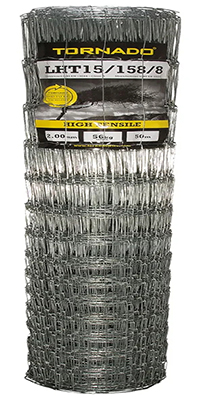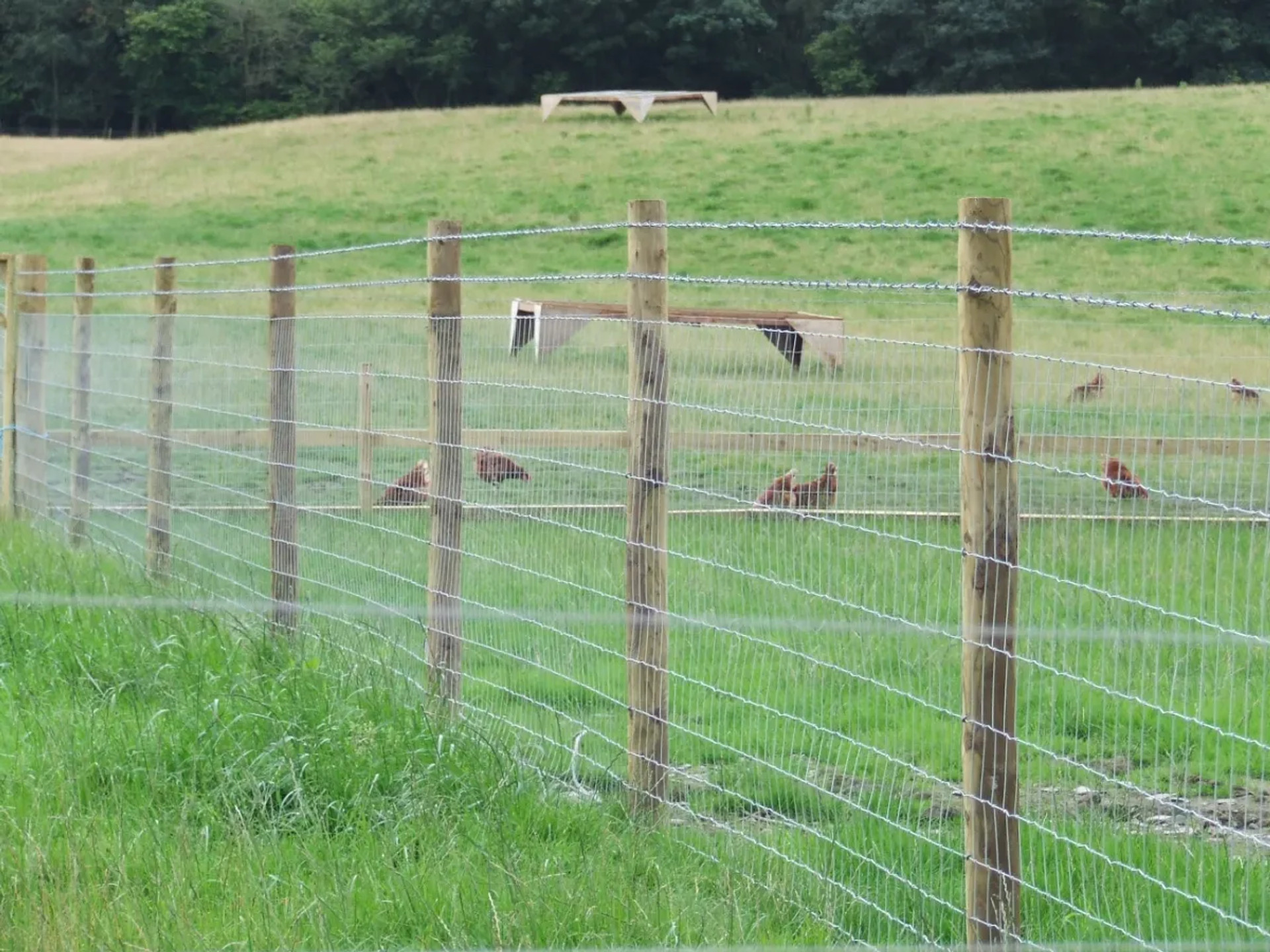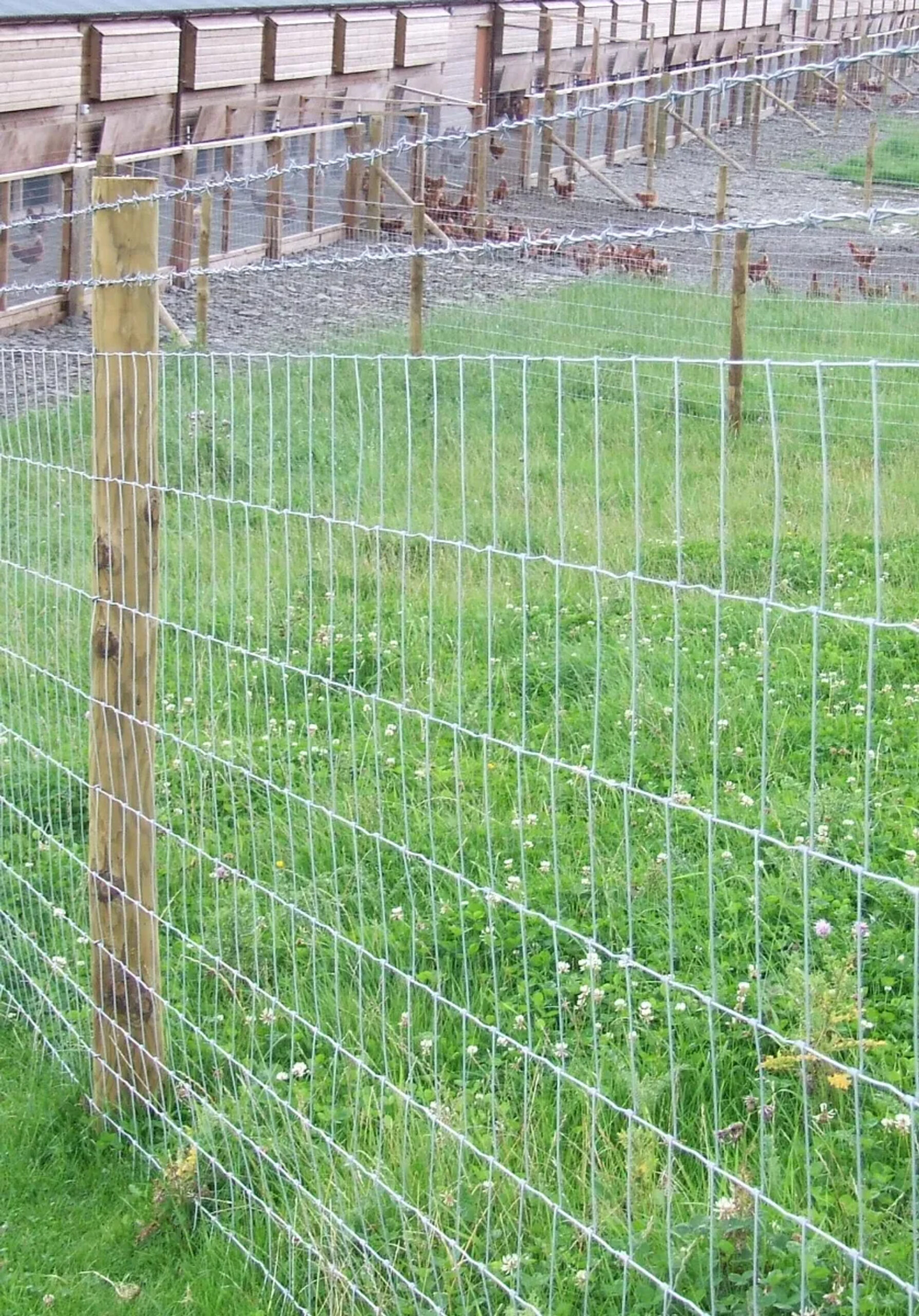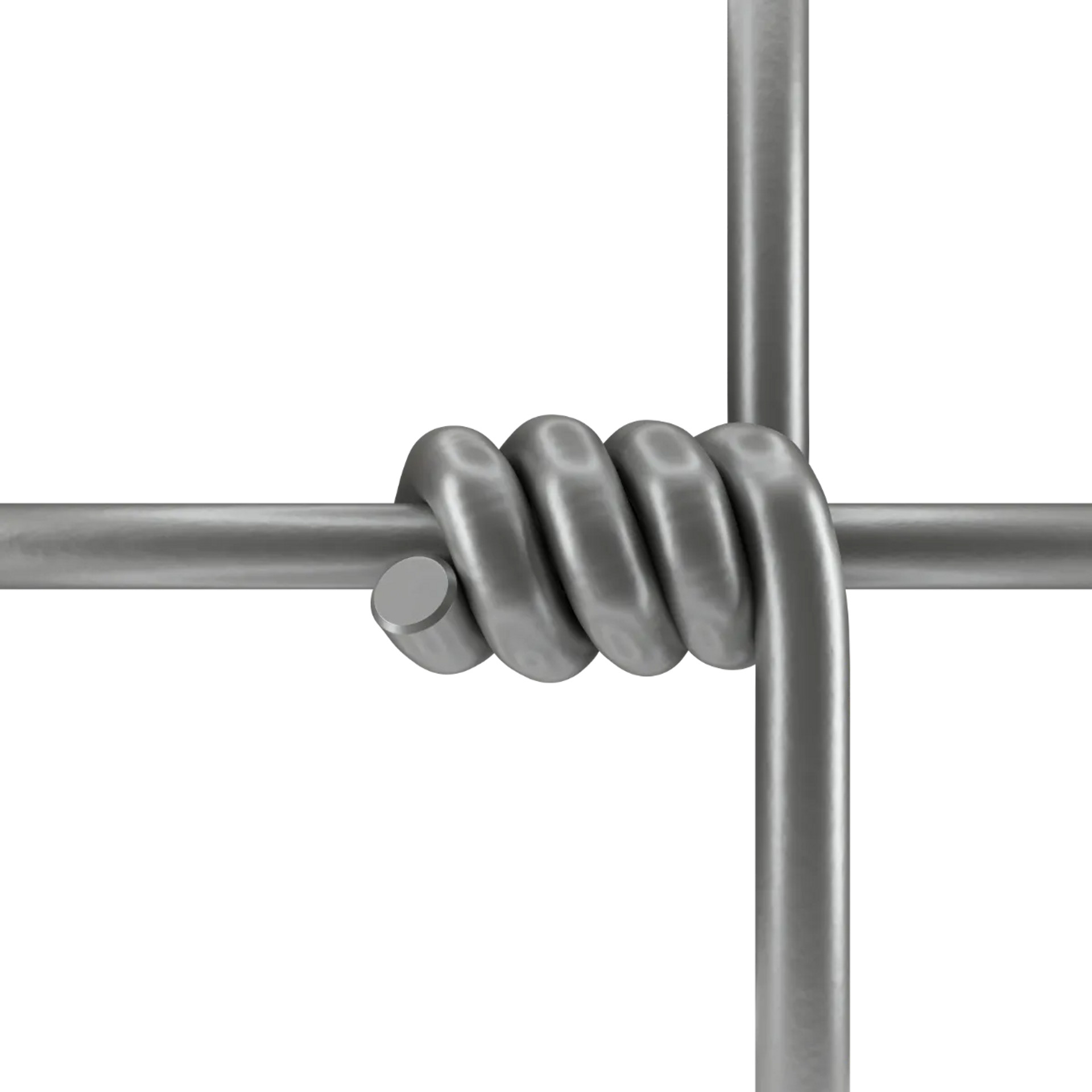Description
Poultry fencing serves two main purposes:
- To safely contain chickens or other poultry.
- To deter common predators such as dogs and foxes from entering the enclosure.
We understand the importance of keeping your chickens and turkeys secure. Tornado Wire’s High Tensile Poultry Fencing provides a robust barrier to achieve this. Developed in consultation with a leading poultry and egg specialist, it offers a bespoke solution to fencing needs, effectively keeping chickens in and predators out, while remaining cost-effective.
The LHT15/158/8 is made from 2mm high tensile wire. Its spring-like properties allow the fence to flex under pressure while maintaining security. The 80mm vertical wires ensure birds are kept safe from harm. It also features a traditional, economical hinge joint, allowing the netting to be turned out or cranked for special applications.
A typical Tornado free-range poultry farm fence is erected with approximately 330mm turned out, resulting in a finished fence height of 1250mm. It can be used in conjunction with an offset electric wire for added security.
Specifications:
- Number of line wires 15
- Overall height 158cm
- Distance between stay wires 8cm
- Top & bottom line wire specification 2mm diameter – 1100 – 1250 N/mm2
- Intermediate line wire specification 2mm diameter – 1100 – 1250 N/mm2
- Vertical stay wire specification 2mm diameter – 695 – 850 N/mm2
- Approx. weight per 50m roll 58kg
- Material composition heavily galvanised steel wire
British & European Standards
- BSEN 10218
- BSEN 10223
- BSEN 10244
Ground Contact:
The service life of zinc and zinc aluminium coated agricultural fences can be significantly reduced when exposed to extremely acidic or saline environments. This factor should be carefully considered during fence installation planning. To achieve the typical service life, it is recommended that the product be installed in an atmosphere with corrosivity class C1, C2, or C3 (very low, low, or medium) as per ISO 9223 standards. The fence should not come into contact with substances that accelerate corrosion, such as fertilizers, pesticides, herbicides, saltwater, and soils with a pH lower than 5.5.
For sites with peaty or wet ground conditions, it is advisable to test the soil pH before designing your installation to ensure compatibility and longevity.





Reviews
There are no reviews yet.